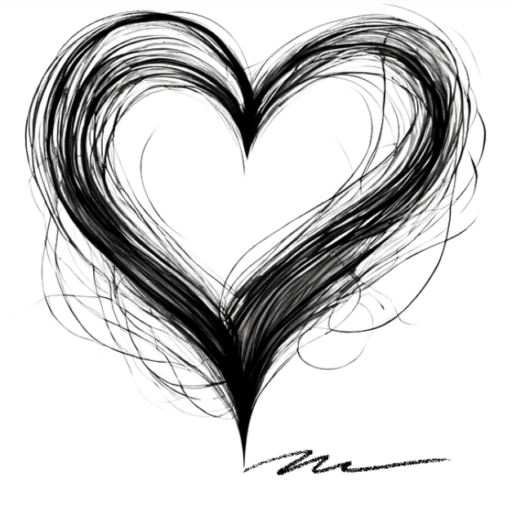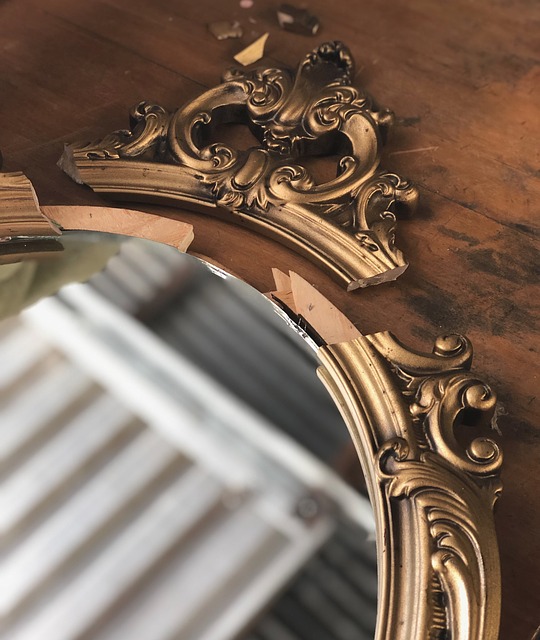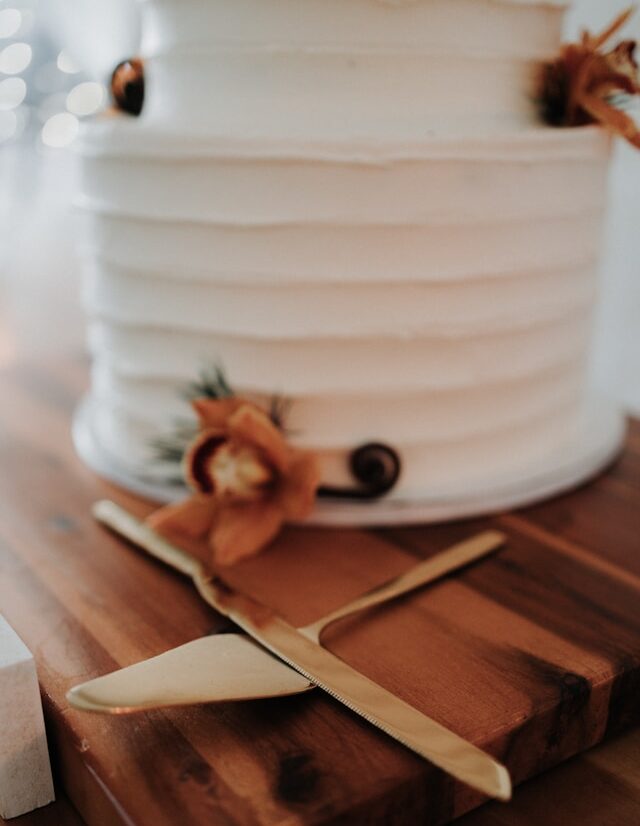Reflections
*CW: This piece contains references to suicide.
The mirror over the sink in the bathroom tells me I do not exist. I know I am here. I have thoughts and memories, vague though they may be. And yet, whenever I pass by a reflective surface, I am reminded that my presence is known only to me. This is my house. I have been here as long as I can remember. But its new inhabitants are not aware of me. How could they be — I died in 1985.
Yes, I am a ghost. Many think we are lost souls, stuck between this world and the next, but it is not so for me. I like it here. Yet I have begun to feel the weight of decades of solitude. In a word, I am lonely. I am the only ghost in these walls. I have tried befriending the cat, for he is more attuned to my presence than the others, but he hisses and puffs out his fur whenever I come near. He does not wish to be friends. Aside from him, there are three in the house: a man, a woman, and a child. Once in a great while there are others in the house, but these never stay.
The child has a friend who comes to the house sometimes. I think I would like to have a friend. Perhaps the child will be my friend — she has a friend, but perhaps she would like another. I cannot approach the child. I hover behind her in the mirror, willing her to know I am there. She stares curiously at her reflection, but does not seem to notice my presence. She only stares and stares. I try to touch her shoulder, but my hand goes straight through. For days, I try to make her notice. But she never does; I am invisible. She does not notice my presence until the day I move forward and touch the mirror. Then her eyes widen in shock, and she retreats a step, as my vague, foggy handprint appears on the mirror.
She glances towards the door, trying to decide whether to run. I trace my finger on the mirror, leaving a fog that spells out the word friend. She hesitates. She slowly approaches the mirror. Then she nods.
I am happy. For the first time since my death, I have a friend.
She moves to the mirror and breathes on it, then writes in the fog N-A-M-E-? I pause. I do not remember my name — it takes me a moment to remember. Then I trace my name on the mirror, and she traces hers. We are friends now. She smiles, and so do I, although she cannot see it.
We use the mirror to talk, as friends do. I can hear her speak aloud, but I do not mind that she traces her words for me on the mirror — it is like a sort of code we have, our friendship language. Sometimes we play games, though she does not always know I am there. My friend tells her mother about me, but her mother scolds her for playing with imaginary friends. She does not believe I am there; she does not believe we are friends. I wish I could be the mother’s and the father’s friend, too, but it is alright that I am not — I have one friend now, and that is enough.
Our friendship grows strong as we exchange stories of our lives. She tells me about school, her other friends, and her family, and I tell her about my past life and the people who have passed through this house before her and her family. My friend tries to tell some of her other friends about me. They laugh, and say that she is imagining. One, who sees my handprint on the mirror, says that the house is haunted. I suppose that must be true.
Years must pass, for my friend’s problems become greater. When our friendship begins, she has only a few problems: her parents annoy her, she does not want to do her schoolwork. Then she is afraid of entering a middle school. Then she and one, or perhaps many, of her other friends have fights and falling-outs. Some of them mend, others do not. Then she is afraid to dress the way she wishes and to cut her hair short: she is afraid of bullies. I tell my friend do not worry; you are brave, you are strong. You are you. Always be you, before anything else. So my friend does wear her clothes, and she does cut her hair short. And the bullies do come. One is her mother — I hear her mother berate her for cutting her hair. My friend once had beautiful, long, black hair, and now it is short. It is all the same to me, but it makes her mother angry.
My friend tells me she does not want to be a girl anymore. Then she says she has decided that she is not one at all. I do not understand — I do not remember my gender from when I was alive. But, if my friend says she is not a girl, she must not be. I do not think my friend would lie to me.
My friend brings home another friend. My friend says this is a special friend, a girl friend. My friend has had many girl friends, I think, but somehow this one is special. They kiss and hold hands when my friend’s mother and father are not around. One day the girl friend stops coming to the house. My friend tells me they are broken up. I do not understand, but I know that my friend is sad, and I, too, feel sad, for my friend. Things get worse. My friend’s mother gets worse, and the other friends, and the bullies. People are often mean, I know. That much, I remember from life.
My friend asks me what it is like to be dead — my friend thinks it does not seem so bad. I tell my friend that it is different than being alive. Yet, I do not remember so much from my life anymore. I know I like it here, so I have chosen to stay. Many do not. Many want out. I do not think I wanted to go. My friend asks how I died. I do not remember. I think I was sick, and the doctors did not have a cure and did not care to have a cure. But perhaps my memory is faulty.
My friend does not want to be here anymore. I do not want my friend to go, for I have only one. I want to make my friend happy again, but I do not know how. My friend swallows the contents of several orange bottles and begins to convulse. Some memory of my life flashes back to me for a moment — I think my friend is dying. I see my friend’s spirit trying to tear away from the corporeal form — my friend wants to leave. My friend does not know where to go, and I do not want my friend to be alone. Where my friend goes, I will not be able to follow. This cannot happen. I cannot allow my friend to leave still so lost and wounded, all alone. I must stop it.
I rush at the mirror, into the mirror, and for a moment, something like the sensation of life rushes through me and into the mirror, and the glass shatters. I hear my friend’s mother call up the stairs, then I hear her footsteps approaching. She screams when she opens the door, and takes my friend away.
When my friend returns, he is not so sad anymore. He says he is a boy now. My friend is much happier than when he tried to leave, and for that, I am happy, too.
W-E-A-R-E-M-O-V-I-N-G he writes on the glass of his window. I feel a sadness at this, for my friend is still leaving where I cannot follow. But my friend will leave to a better, happier place now, instead of a frightening and unknown one, and that is all that matters. I am glad my friend will be happy. T-H-A-N-K-Y-O-U he writes on the window. He sits in front of it. I think he sheds a few tears.
“I love you,” he says out loud. I smile, though he cannot see it. I love you too, I write back on the window. He smiles, and I smile, and I know that we will always be friends, no matter how far he may be. I remember from life that love binds people together, no matter how great the distance.

R.A. Buratovich is a writer and editor from the United States. They have written countless poems and short stories and have had work published in Nyack College’s The Fine Print. Buratovich studied English as an undergraduate and has since taught English in Ukraine. They currently live in Michigan, where they work as a sushi chef.



